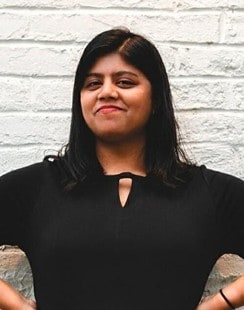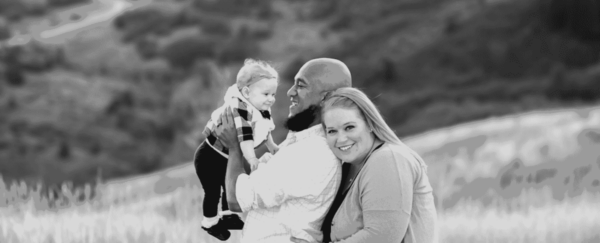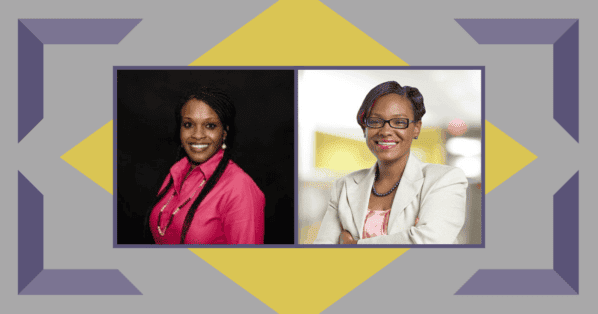Meet Shatorupa, Biomedical Engineering Student at North Carolina State University
She is in her last year of her degree and has plans of graduating soon! Read on to hear what inspired her to study biomedical engineering.

How did you first become interested in STEM? What inspired you to study biomedical engineering?
From a young age, I was interested in STEM. I was immersed in STEM after-school programs, classwork, and summer camps. It was quite an innate interest, only bolstered by the academic environment I had the opportunity to be in.
I decided to go into this major because of very personal reasons. I grew up in a family environment that had heavy interactions with medical professionals due to chronic illnesses, and seeing that pain, exhaustion, and stress that came out motivated me.
I wanted to focus on a way to help minimize those consequences for other families, to prevent others from experiencing my family’s pain. I realized quickly that the way I wanted to help was through medical devices and instrumentation.
What are some neat things that biomedical engineers work on?
People have worked on a myriad of cool things. I’ve seen things ranging from life-support systems for future manned aerospace explorations to sweat sensing via a wearable patch. One of my favorite aspects to focus on is wearable sensors. Being able to learn information about yourself via a wristwatch, patch or wearing a specific shirt is super cool to me. Not only does that increase accessibility to healthcare information but also it can be done wirelessly and hands-free!
Can you tell us about a time when you failed and how you learned from it?
My first coding class, which focused on learning and exploring MATLAB, was one of the hardest for me. I continuously received poor grades, and the first test was my failure. It bogged me down mentally, which created a chain reaction in all my other classes. I moved on by researching avenues to improve. Not only did I Google “How to learn MATLAB fast”, but I also reached out to my professors and close friends. It took me a while to fully digest that the bad grades didn’t define me who I am, that one failure will not stop my dreams, and that I’ll be okay.
Can you tell us about challenges that you have experienced as a woman studying biomedical engineering and how you have overcome them?
Being one of the only women of color in the room can be overwhelming at first, and it did affect me. The unconscious intimidation combined with societal expectations of women got to me as a freshman and sophomore. I felt the need to overcompensate for this by taking on a larger workload, adding more stress to my life.
I overcame these small yet overwhelming challenges by speaking to women around me. I opened up to my professors and upperclassmen, and I found out that I wasn’t alone. Overcoming these obstacles originates from inner strength, but I used resources around me to create a support network.
Can you share how women and people from all sorts of backgrounds make a positive difference in the biomedical engineering field?
Cultural diversity is the backbone of any good scientific field. Having scientists, researchers, and students from a variety of backgrounds and cultures is necessary for good science to occur. I believe that these backgrounds and experiences bring ideas to the table that may not exist otherwise. Women can bring positive contributions to Biomedical Engineering simply by inputting their opinions. Women should not be afraid to stand up for their ideas, thoughts, and beliefs. We as women bring more contributions by not stifling our voices.
What is a typical day like for you as a biomedical engineering student?
A typical day in my academic life would consist of working, studying, and going to class. A lot of Biomedical Engineering as an undergraduate senior involves our year-long senior design project. This project is extremely exciting, and the aim is to create a novel medical device to aid or facilitate patient healthcare. I’m especially grateful that my team has been amazing and that’s only made the project even more interesting.
What advice can you share for our readers who are interested in going to school for biomedical engineering?
You can do anything you set your mind to, even if you’re told otherwise. Biomedical Engineering is an amazing field filled with innovation, creativity, and diversity. If you’re considering it, don’t get discouraged by people around you.
Meet Kaylee, Biomedical Engineering Student at the University of North Dakota

Kaylee is pursuing her master’s degree in biomedical engineering at the University of North Dakota. She recently earned her bachelor’s degree in electrical engineering, too.
What did you know about biomedical engineering when you were a kid? Can you tell us how you first became interested in biomedical engineering?
I can honestly say I knew nothing about biomedical engineering as a child. I was never given the opportunity to know much about any engineering disciplines. I only found out engineering was an option for me my senior year of high school. Growing up I always wanted to go to medical school. Math and science were my favorite subjects in high school. I planned on being a biology major, since this is what a lot of pre-medicine students major in. But after taking a couple biology courses, I was not as interested in it.
At the same time, I was taking a calculus-based physics course and was absolutely fascinated by it. I changed my major last-minute to engineering. I later chose Biomedical Engineering since it combined my interests of medicine and engineering.
What are some really cool things that biomedical engineers work on?
There are lots of really cool things biomedical engineers work on! Right now, we are working on a robot that will be fully autonomous (does not need to be controlled by a human) that scans around a room and disinfects areas that have contamination on them. This is all being done using different types and wavelengths of light.
Another thing biomedical engineers work on is prosthetic limbs, such as arms and legs, which are controlled using input from your nervous system or brain signals.
What challenges have you encountered as a woman studying biomedical engineering, and how have you overcome them?
I do not think I have encountered many challenges being a woman in engineering. It is becoming more and more popular, and we have a lot of resources for women in engineering here at UND. I think more people are intrigued by women studying engineering and think it is really awesome!
Tell us about a time you failed. How did you move on from that?
When I first came to UND I had not taken a math course in two years and jumped right into calculus two because I did not want to take calculus one over again. I ended up not remembering most of what I learned in calculus one and failed my first test in calculus two. I ended up talking to my professor and she recommended some videos of a professor who had lectures on YouTube. I went through and watched all of his videos and my test scores drastically changed. I ended up passing calculus two with an A after that.
How might women and people from culturally diverse backgrounds bring positive contributions to biomedical engineering?
Yes, cultural diversity is very important! It is important to have the perspectives of multiple different backgrounds. There are many benefits to working with a culturally diverse group, such as one person might see something in a completely different way than others and this can spark creativity and innovation. For example, women can bring positive contributions to biomedical engineering by being the person in the group who has a new or different perspective.
Can you describe a “day in your life” studying biomedical engineering and share what you like most about your program at the University of North Dakota?
My days can be a little busy. I currently work for SafetySpect here in Grand Forks as well as pursuing my masters. A lot of my classes are project based, so I spend most of my time working on projects instead of studying for tests. I like this a lot better because I get to apply my knowledge to real life applications.
I also am running a few pilot studies with about eight different nursing homes in the area to test our contamination sanitization inspection and disinfection (CSI-D) device for post cleaning auditing use. This is very important and exciting for me because I have a background in long-term care, and this impacts those with compromised immune systems who live in these facilities.
What do you like most about the University of North Dakota and its biomedical engineering program?
What I love most about UND and the biomedical engineering program as well as the engineering school as a whole, is the relationships I have with other students and my professors. UND has smaller class sizes, so most of our professors know us on a personal level. I have gotten the chance for multiple different exciting opportunities because of my professors and them wanting me to succeed.
Can you share any advice for our readers who might be considering going to school for biomedical engineering?
I would say that if you even have the slightest interest in any sort of engineering to try it! It does not hurt to try. I knew nothing about electrical engineering when I decided to pursue that as my career field. Now, I would not have it any other way. I would also say if you get the chance, ask an engineer if you could follow them for a day to see what they really do. It would be a great opportunity to learn more about engineering.
Meet Molly, Biomedical/Chemical Engineering Student at the University of South Florida

Molly is pursuing her doctoral degree in Chemical Engineering at the University of South Florida. She recently earned her master’s degree in Biomedical Engineering and her bachelor’s degree in Chemical Engineering. While her PhD is in Chemical Engineering, her research topic crosses between Chemical, Biomedical, and Electrical Engineering.
Can you tell us more about your research and what you are studying?
I take biomedical science that’s done in a lab and make it practical for use in real life. This includes drugs, therapies, instrumentation, implants, devices, prosthetics, tissues, and so much more. For example, a scientist creates a drug that is meant to attack and kill cancer cells. My job is to find a way to manufacture the drug, optimize the use of the drug, and/or make it better, faster, and cheaper.
What inspired you to pursue a career in engineering?
I knew I wanted to be an engineer in the 5th grade because I got a 100% on a math test that everyone else in my class didn’t do well on. My parents told me since I was good at math, I should become an engineer like my uncle. My journey in engineering since then has been finding out where exactly I belong.
I found my interest in immunotherapies after my younger brother was diagnosed with childhood leukemia. I was able to see the therapies in action and saw some of the issues that they have in the clinical setting. I realized that my purpose was to optimize treatments that already existed to make them better, more accessible, and less taxing to the patients.
What did you know about biomedical engineering when you were a child?
When I was a kid, I thought engineering was limited to Civil or Mechanical Engineering. I didn’t know about all these different types of engineering until I was a freshman in high school. Then I went to an engineering college’s open house.
Each department had a stand, and I decided that I liked Chemical Engineering because they said Chemical Engineers make toothpaste and I thought that was pretty cool. But later on, I decided that my passion was in blood and immune cancer therapies which put me on the path to Biomedical Engineering, which I didn’t know was an option as a child.
Can you tell us a bit about what it is like to get a doctoral degree in your program at the University of South Florida?
There is an application process, of course. Then there’s the matter of finding a research advisor, registering for classes, and training in research. I am now starting my second year in my Ph.D. program in Chemical Engineering.
In Spring 2021, I completed my Qualifying Exams (QE). For my department, to pass the QE, PhD students have to write a research proposal and present it to our committees. The research proposal outlines our plan of research for our dissertation. I had to get it approved by my committee members, which is a group of professors from my department and other departments, including my research advisor.
Now that I have passed, I am now a Ph.D. Candidate. For the next few years, I will be working on the research that I proposed. I plan to finish my dissertation sometime in 2023.
Can you describe some really cool experiences you have had as a PhD engineering student?
I have been a part of five research projects in my career, and the most exciting project (other than my dissertation work) was when I received a fellowship to conduct virus research at the National University of Singapore. When I received the fellowship, I had never been outside of the country. I was about to go to the other side of the globe for 8 weeks!
The research involved mapping viruses to see how they change structure in different environments. For example, Dengue virus affects humans, but not mosquitos and they found one of the reasons is because the virus changes structure when it’s heated up. Human body temperature is higher than a mosquito’s so that temperature change is enough to “activate” the virus. We were looking for weak spots in viruses in different environments to create more effective vaccines.
It was an amazing experience, not only because I was doing cool research, but I was learning a different research culture. I was working in a team that came from all corners of the earth and we were coming together to solve these problems that affect so many people. I also got to explore a place I never imagined I’d be able to visit, and I got to live there for 2 months.
Additionally, I got to present this research in a multitude of media. This was included on social media, in a 5-minute Rapid-Fire presentation for the WE18 Graduate Competition, and as a poster and 10-minute oral presentation at 2019 WELocal Tampa, where I won first prize at the Collegiate Competition.
Can you share any challenges you have encountered as a woman studying biomedical engineering? How have you overcome them?
One of the challenges I have faced is isolation. I work in a field that is predominately male and a lot of my colleagues and professors are male. Especially in graduate school because my lab group is small, I felt like I didn’t have support from other women.
To combat this, I sought out mentors in my university and within SWE. I ensured that I had at least one woman on my Ph.D. committee. Additionally, I also helped combat this problem for other graduate students in my college by creating a GradSWE community at my university.
This has allowed women from different labs and different departments to come together to support each other so we don’t feel alone. Empowered women empower women, and we need community to make it through the struggles that women face on a day-to-day basis in engineering.
Can you share one piece of advice for our readers who may be interested in studying biomedical engineering?
Don’t let the fear of failure prevent you from trying. Failing is an important part of life and you tend to learn more from your failures than your successes. Failure does make those successes a lot more satisfying when you see how far you’ve come.
Imposter syndrome is real, and it’s something that all of us struggle with on a day-to-day basis. But you will realize that you have worked hard for everything you have, you are a strong woman, and you are a smart and capable engineer who is going to do amazing things.
Author
-

Allison Osmanson is a Materials Science and Engineering PhD student at the University of Texas at Arlington. She holds a Master’s degree in Materials Science and Engineering from the University of North Texas and she earned her Bachelor’s degree in Materials Science and Engineering from Washington State University. She plans to graduate in December 2021, after which, she will be a Microelectronics Packaging Engineer at Texas Instruments in Dallas, Texas.






